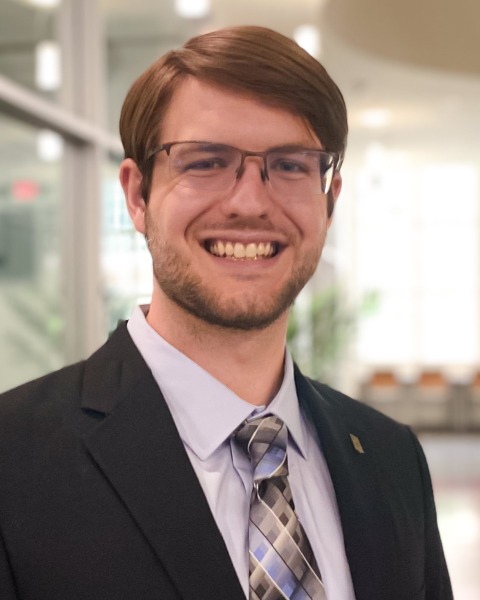Biomedical Engineering Education
Ethics, Access, and Outreach
Exploring Career Path Awareness and Pre-College Experiences of First-Generation BME Students
Friday, October 10, 2025
2:45 PM - 3:00 PM PDT
Location: Room 31C
- RS
Rebecca Scott
Assistant Professor
University of Oklahoma
Norman, Oklahoma, United States 
Alex Frickenstein
Assistant Professor
University of Oklahoma
Norman, Oklahoma, United States
Presenting Author(s)
Co-Author(s)
Introduction: : Underrepresented students, including first-generation college students (FGCS), often face challenges in higher education that affect their academic success, sense of belonging, and career development. Limited exposure to professional fields, fewer familial resources, and lack of guidance can hinder their persistence—especially in STEM, where such students remain underrepresented. In response, institutions have introduced K–12 outreach and first-year courses to build belonging and career awareness [1]. Importantly, research shows that motivations to pursue engineering are shaped by social support and early interest in STEM and industry careers [2]. However, little is known about how early career knowledge differs between FGCSs and non-first-generation students (NFGCSs) in the same academic context. In this study, we explored how these groups differ in their understanding of career paths and how prior experiences in engineering and medicine may shape these perceptions.
Materials and
Methods: : First year BME students completed an online survey in Week 1 of the Spring 2025 semester. The survey focused on students’ (i) incoming knowledge of BME career paths and job titles, (ii) perceptions of required skillsets and experiences for a BME career, and (iii) prior experiences in engineering and the medical field. Only data from students who consented to participate in the IRB-approved study was analyzed. Demographic information was also collected as part of the online survey, and all data was deidentified prior to analysis. Open coding methods were used to complete a systematic review of survey responses [3]. Survey data from FGCS (N=11) and NFGCS (N=52) consenting participants was analyzed. Statistical analysis was performed to identify differences between FGCS and NFGCS groups (Mann-Whitney Test).
Results, Conclusions, and Discussions:: Survey analysis revealed that FGCS and NFGCS students listed a similar number of BME career paths (FGCS: 1.91/student; NFGCS: 1.37/student), job titles (FGCS: 0.1/student; NFGCS: 0.2/student), and relevant skillsets or experiences (FGCS: 2.36/student; NFGCS: 2.38/student). However, key differences emerged in prior exposure: 45% of FGCS students reported taking high school courses in engineering or biomedical sciences (vs. 33% NFGCS), and 27% held related jobs (vs. 13% NFGCS). In contrast, FGCS students were less likely to have participated in extracurriculars (FGCS: 9%; NFGCS: 33%) or have family in related fields (FGCS: 9%; NFGCS: 19%). These findings suggest that while career knowledge appears comparable, the type and source of exposure differ significantly between groups, with potential implications for student development of career confidence and networks. Future work will explore how targeted early interventions can bridge these experience gaps and better support first-generation college students in BME.
Acknowledgements and/or References (Optional):: [1] Frow, E.K., et. al., Promoting Career Reflection Among Freshman BME Students. Paper presented at the 2016 ASEE Annual Conference & Exposition, 10.18260/p.270263. [2] Shehab, R.L., et. al., Motivating Factors for Choosing Engineering as Reported by Racial and Ethnic Minority Students. Paper presented at the 2015 ASEE Annual Conference & Exposition. [3] Scott, R.A., et. al., Longitudinal Analysis of Strategies for Improving Biomedical Engineering Student Knowledge of Career Paths and Desired Skillsets. Paper presented at the 2024 ASEE Annual Conference & Exposition.
